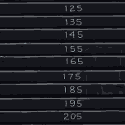|
I second MapTool. I've actually tried several different programs and even some demos of non-free ones and it's the most useful one I have found so far.
|
|
|
|

|
| # ? Jun 12, 2024 09:37 |
|
If you're extremely stupid like I am, and can't figure out MapTools, there's also this: http://www.habitualindolence.net/masterplan/ You can set up something to send to Player View, which you can show on a second monitor so they only see what you want them to see, includes stat tracking, etc.
|
|
|
|
veekie posted:Depends heavily on the group. There are groups(especially D&D based ones), who would want to know how that works at all, if you say its magic, what spell, etc. Not all that common, and not always extreme, but they are there. Even so, I would consider it a design flaw if that information is strictly necessary or crucial to the player's decision making unless that's entirely the kind of game your group is interested in running, in which case you probably should be concerned less with dramatic puzzle bosses or unique combat situations, and more about tweaked builds. Even so, you cant genuinely call it a puzzle boss if it relies on divining archaic rule sets to beat it. If players insist to know these sort of things, there's nothing wrong with divulging it. If the player has to consult one or more rulebooks to find a counter-intuitive way to get around it, then you probably designed the situation too rigidly. Honestly it's up to each individual GM to decide how best to approach designing a puzzle fight, though I'm suggesting that the looser and faster a group plays with the rules, the more inviting the concept is to execute, and the more willing players will be to participate in solving it. If anything, this is one of the best places to "GM on the fly" as it were, as players may diverge radically from your expectations (for the better, or for the embarrassingly worse), and being able to keep the situation suitable for the action or drama will keep it from blowing up in your face.
|
|
|
|
That, yes, if you need to reference obscure rules to beat it at all, then thats no fun as a puzzle boss. Theres no harm of course, if it can beaten the normal way, with more effort.
|
|
|
|
Yeah, essentially. The more elaborate a GM wants to be, the more essential it is that he has an out in case it goes south. Even if it's as simple as dropping the idea entirely. Nothing sucks worse than a GM with all the generosity and give of a brick wall, especially when he expects the players to be creative. A little give and take is all.
|
|
|
|
DarkHorse posted:I am a total MapTool whore and that's what I'll recommend. I started a thread that walked through the basics of setting it up (and focused primarily on 4E) but it's long since been archived and I can't find it at the moment. Basically, MapTool in conjunction with Rumble's 4E "lite" framework has served every need I have. If you have online compendium access, you can even copy and paste powers into the tokens you create and move around. I can confirm: Maptools is a wonderful, wonderful tool that not only is a godsend for online tabletop games, but is effectively enough to use as a reference map for a regular sit-down game. Even on the lowest level of proficiency, you get all the trappings of a good tabletop with minis. But if you are -really- into the Maptools stuff, you can do some surprisingly high-level stuff because I =think= it uses java for the macros; for example, you can set up menus and forms that pop up at the click of a button. I am currently overhauling my framework for my players in my game; my goal is to make so the player only has to click a button to target an enemy, run through the attack roll check vs AC, calculate damage, and change the HP/apply status effects. I haven't heard of the Rumble framework though, is it as intuitive as you say it is? I might crack open the hood and 'borrow' some elements of it.
|
|
|
|
Wargigargle posted:I can confirm: Maptools is a wonderful, wonderful tool that not only is a godsend for online tabletop games, but is effectively enough to use as a reference map for a regular sit-down game. Even on the lowest level of proficiency, you get all the trappings of a good tabletop with minis. But if you are -really- into the Maptools stuff, you can do some surprisingly high-level stuff because I =think= it uses java for the macros; for example, you can set up menus and forms that pop up at the click of a button. We used Rumble's non-lite framework for a year, and it included targeting and applied status and did damage. Not only did it crash more often from MapTool trying to be a computer within my computer, but the effects (damage and states) applied had to be altered more and more often when various things weren't done on the initial dialog -- whether they were things that were checkboxes or things that had to be lumped in to the bonus/penalty on the attack. We've since moved to macros that essentially spit out the attack roll and damage with the compendium text for the power via HTML, and it's been great. We have a few powers that pop up dialogues for multi-target and stuff, but it's all still applied by hand. Not telling you not to do it -- if yours works better, then maybe I'll be using your framework someday -- but it had significant problems that got worse as the PCs had more temporary bonuses and effects to track, and more complicated powers not easily modeled.
|
|
|
|
I run my games on IRC and I'd love some really simple tool where I can just upload a map image and then move little token around on it. Specially something with a 'fog of war' effect or something would be nice. Doesn't have to track any stats or do any mechanics, just deal with the map. Does maptools do that?
|
|
|
|
Yes, it does that rather easily. You can even download a simple tokenizer program that you can use to make tokens from images with from the RPTools site.
|
|
|
|
Baronjutter posted:I run my games on IRC and I'd love some really simple tool where I can just upload a map image and then move little token around on it. Specially something with a 'fog of war' effect or something would be nice. Doesn't have to track any stats or do any mechanics, just deal with the map. Does maptools do that? Maptools is exactly what you're looking for. You can put your map image straight into it, spend a few minutes with the program to apply things like walls that block line of sight and light sources, then use it along with IRC to run the whole game. Players can move their tokens around themselves, you can set up info for enemies so when people mouseover them they'll see a bigger image along with a description, all that fun stuff.
|
|
|
|
I tried getting maptools to work years ago, I guess I'll give it another chance. It was super clunky and hard to get running let alone use...
|
|
|
|
edit :ack, disregard
|
|
|
|
homullus posted:We used Rumble's non-lite framework for a year, and it included targeting and applied status and did damage. Not only did it crash more often from MapTool trying to be a computer within my computer, but the effects (damage and states) applied had to be altered more and more often when various things weren't done on the initial dialog -- whether they were things that were checkboxes or things that had to be lumped in to the bonus/penalty on the attack. We've since moved to macros that essentially spit out the attack roll and damage with the compendium text for the power via HTML, and it's been great. We have a few powers that pop up dialogues for multi-target and stuff, but it's all still applied by hand. You can use the power buttons and target particular enemies and it will track whether the attack hits or misses. It even has special boxes for charging, combat advantage, settings for "roll two and take highest" and of course miscellaneous attack and damage bonuses. If anyone wants to try a demo of it out you can PM me and I can arrange a quick encounter.
|
|
|
|
I played with Masterplan a bit and outlined my first adventure (which had already existed in a Google doc). It's a neat program, but my main issue with it is that for some retarded reason you can't transfer libraries between PC's. Since I need to be able to design the game on my desktop PC and run it off my laptop, this is a huge problem. It looks like at some point Wizards of the Coast decided to threaten them with a lawsuit for scraping the Compendium, but I'm not sure why the library restrictions would persist in the new versions of Masterplan. Maptools looks like a decent alternative, but it appears to have a much steeper learning curve, even with a good framework. Edit: After playing with Maptools some more, it really seems better suited to running an online session rather than planning out an adventure. I really like the way Masterplan does its plot and encounter flowcharts, but the library thing is probably a dealbreaker unless there's some way around it. WhiteHowler fucked around with this message at 04:42 on Jan 5, 2012 |
|
|
|
WhiteHowler posted:I played with Masterplan a bit and outlined my first adventure (which had already existed in a Google doc). The two PCs just have to have the same name/login. For example, my PC is called Huckleberry-laptop and my Win7 username is Huckleberry. So if I have another PC named the exact same thing witht he login, the libraries work. That being said, can anyone help me with loot in 4e? I don't know how to give out loot at all. I mean, I understand that it will be in chests/drop from monsters, but I don't know what a good way to divvy it up is. I have 4 players (fighter, barbarian, warlock, ranger [I know.]), and I don't want them to think I'm playing favorites by gear always dropping for one, but not the other, but I only have 3 encounters planned for our first session so I don't know what to do.
|
|
|
|
I keep a chart of the items I've given out and generally keep track of both gold value and the number and level of items each character has on them, and it's worked decently well so far. There is going to be some imbalance, but over time it averages out. Just try to keep things fair and it should be fine. The way I've done it (assuming this is early level) you can have them fight through most of it without finding much besides gold, treasure, or potions, then when they're ready to level up they find a cache of items. The player having the hardest time gets the best item, the rest of them get something neat or fun, and some of the items benefit the party as a whole (like a bag of holding or everlasting provisions or something like that). Dole out appropriate individual items later as needed when you see a PC struggling. Be prepared for them to sell things off or to give them to a different PC than you expect.
|
|
|
|
I posted this a few pages back and didn't get a response (maybe I did and I didn't notice), but I'll try again just to be sure. I've been thinking about running All Flesh Must Be Eaten for a couple of months now but I don't know much about the system besides the core rules. The campaign that I want to run will take the players across a pretty large modern city as they try to find a way out, but exactly how descriptive I should be is hanging me up. Should I just say something like "you see a hardware store, a boarded up computer shop and a gas station" every time they come to a new street? Also, how can I keep up the tension as they're moving on foot across the city? Any advice is much appreciated!
|
|
|
|
Thelonious Funk posted:That being said, can anyone help me with loot in 4e? I don't know how to give out loot at all. I mean, I understand that it will be in chests/drop from monsters, but I don't know what a good way to divvy it up is. I have 4 players (fighter, barbarian, warlock, ranger [I know.]), and I don't want them to think I'm playing favorites by gear always dropping for one, but not the other, but I only have 3 encounters planned for our first session so I don't know what to do. Also, regarding neat but not so numerically powerful items if there is a power imbalance in the party, I loving love Bags of Holding and it was one of the first things the party got in the campaign I am a player in, and am probably the top of the power curve in the party currently even though I won't have any very synergistic feats for another 12 levels. So now I get to hoard trinkets that might be of use at random times, and some of the other less-charoped characters (though at least one is rerolling/reworking stats since we lost the person playing a Leader) have a few magic items and it doesn't bother me too much because I love more lateral-thinking puzzly efforts that are outside the pure mathemancy of charop. Coincidentally, I am also the one keeping track of the party's "general inventory", gold, xp and adventure log. We're supposedly about to get a bunch of new items since we have been lagging behind the math balance for our level 4e is designed for, but beyond making sure everyone is at least up to that level, it probably depends a bit on your players what you can do/get away with. For me personally as a player, when playing a game like D&D I generally like two things: themed charop and lateral thinking puzzles/opportunities. Good meaningful story choice opportunities are good in general, but in something as heavily structured as 4e specifically, it's nice to have the option to go "off rails" of the system itself at times, otherwise it gets closer to feeling like I might as well play a video game instead. Baronjutter posted:I tried getting maptools to work years ago, I guess I'll give it another chance. It was super clunky and hard to get running let alone use... Kylra fucked around with this message at 21:04 on Jan 7, 2012 |
|
|
|
procitizen posted:I posted this a few pages back and didn't get a response (maybe I did and I didn't notice), but I'll try again just to be sure. I've been thinking about running All Flesh Must Be Eaten for a couple of months now but I don't know much about the system besides the core rules. The campaign that I want to run will take the players across a pretty large modern city as they try to find a way out, but exactly how descriptive I should be is hanging me up. Should I just say something like "you see a hardware store, a boarded up computer shop and a gas station" every time they come to a new street? Also, how can I keep up the tension as they're moving on foot across the city? Any advice is much appreciated! I always try to be descriptive, but in terms of what the characters are actually looking at/for. If they're looking for shops and possible loot sources, sure, let them know what's around when they arrive, street by street. If they're focusing on identifying zombies/other potential menaces, I focus more on general descriptions of the surrounds and make sure to mention plenty of details the players can interpret as spots were a zombie's sure to pop out. This can really ratchet up the tension as they sweep and clear section and after with nothing, even though every spot seems like a sure thing. Then, the second they start getting sloppy, there's a horde. I like to take into account what their average perception checks are like, too, when handing out descriptions, and go with whoever's got the mean as my general guideline. But most of all, pay attention to what the players seem to focus on, and go with that, leaving out stuff they tend to ignore. The whole "no one looks up" situation. Lastly, for survival horror where loot is key, make every potential loot source look as dangerous and foreboding as possible, unless you're leading them into an ambush. Make the players really have to balance if potential gear is worth the risk.
|
|
|
|
Thelonious Funk posted:That being said, can anyone help me with loot in 4e? For the cash portion I'll usually write down the total amount for the current level and subtract the respective amount whenever I have them find GP or treasure in-game, or whenever they gain a benefit that has a monetary value. For example if they talk an NPC into using a ritual on their behalf for free, I'll subtract one use of that ritual, or if they talk him into buying an item for 125% of the selling price, I'll subtract the additional 25%. I treat it as more of a story/benefit than actual financial budget. Of course you got to make sure the budget runs out at roughly the time they level up. Another and far easier method is of course: apply inherent bonuses, give out exactly the items that you want or make sense for the in-game situation at the moment, leave all worries behind.
|
|
|
|
Thelonious Funk posted:That being said, can anyone help me with loot in 4e? I guess my first question is: How common is magic in your particular setting, and, subsequently, magic items? Personally, I don't tailor loot much for my players, in whatever game I happen to be playing (I don't do much D&D-style dungeon crawl gaming). Let them make the most with what they have. The world is there to provide them with conflict, struggle, and adventure, not custom shinies. I like random treasure, really, and letting the players figure out what the Hell to do with it. You don't need things like magic shops, either, if the setting doesn't support them. I'm sure lots of underground arcane groups would be willing to trade.
|
|
|
|
...
Nostalgia4ColdWar fucked around with this message at 02:49 on Mar 31, 2017 |
|
|
Thelonious Funk posted:That being said, can anyone help me with loot in 4e? I don't know how to give out loot at all. I mean, I understand that it will be in chests/drop from monsters, but I don't know what a good way to divvy it up is. I have 4 players (fighter, barbarian, warlock, ranger [I know.]), and I don't want them to think I'm playing favorites by gear always dropping for one, but not the other, but I only have 3 encounters planned for our first session so I don't know what to do. It took a while, but eventually I've come to the conclusion that what I prefer to do with treasure is turn inherent bonuses on, to account for scaling, give my players a bunch of gold/residuum/components to enchant with as they will, and when I give out an actual magic item, make it something that makes even the good rares in Mordy's Magnificent Emporium look kinda lame. As a quest reward, I gave my party the choice between a use of the legendary Training Montage ritual (Your lowest level non-Reliable encounter power gains the Reliable tag, if you swap it out, your new lowest power gains it.) or the Wheel of Fortune tattoo for all of them, a tattoo that starts with one charge after an extended rest, gains a charge when you roll a 1 on an attack or save, and you can spend two charges to change any d20 roll retroactively to a natural 20. They took the wheel of fortune tattoo and love it to death. The point I'm trying to make is, when you actually give them something, make it something that, even if they're not currently specced to use it, they'll want to -respec- to use rather than render into residuum. Give them a frost brand that makes all their damage cold, but instead of a lame daily damage boost, give it per encounter when you're the target of a fire attack, you're no longer a target, and daily when you're the target of a fire attack, NOBODY is a target. That is a weapon that will make your PCs sit up and take notice. Got someone sword&boarding? Almost all the printed shields are terrible. Give them Eric the Cavalier's Griffin Shield, with per encounter when you're targeted by an area or close attack, you and anybody within 2 squares of you are unaffected. Got a spear user? Give them the Spear that Breaks Causality, with Property: once an attack is declared with this weapon, no Free or Immediate actions may be taken by anybody until the attack has finished resolving, and a daily power to make the next attack with the spear hit if it would miss, crit if it would hit, and auto-kill if it would crit.
|
|
|
|
|
For 4e loot, I take the easy route - pack up the entire parcel, and drop it in at an appropriate moment. Won a fighting tournament? That's what was offered as a reward! Cleaned out the evil temple? Here's the sort of loot you'd expect to find. Downed the boss? Here's what might be in his treasury. I don't define it or pre-request 'wish lists' or anything - though you'll probably want them to have wish lists on hand so they know what they want and what item level it is - and let them discuss it and figure out who gets what. My groups do this after the game, typically, though some might want to do it during prep time or on forums between games. I also let them spend the gold that would be in the parcel freely, as though that gold wasn't there and was actually X item or whatever. Set out a few limitations ahead of time if you want to - mine are 'no rare items' and a small list of banned items available on our houserules page - and let 'em at it. I don't bother describing the loot either - I stick that to the players. (Did you just pick up that spear from the treasure chest? From the boss? Is it actually the spear you had before, but imbued with new powers from the boss' blood? Is it not actually a spear at all, but a shard of mental force you project with new insight into your power or a focusing crystal?) Most will be fairly standard with it or just not give the item any real screen time at all - with the number of items that go out, that's fine too - but the ones that stand out will generally be pretty great. Ultimately, the players know what they want (or need) better than I do; and I don't find micromanaging loot to be a valuable use of my DM time. Note that none of this precludes giving extras or buffing up items they already have (the ranger's cloak - stolen from a wizard - now has an additional sweet extradimensional space in it that he can hide in for a round once a day like the Voidsoul racial; the warden's heirloom scarf - in addition to being noticable as an icon of her prowess to anyone who knows how to read the patterns woven into it - has a power-up daily) - it's just that I'd rather make it a totally awesome extra rather than potentially blocking them out of something they want. Thus far, it certainly hasn't hurt anything, and it's saved quite a bit of my time to trust my players to handle the specifics.
|
|
|
|
So we were going to have our first session today, only noone of my players had submitted characters in any way shape or form except tell me that they were probably going to play X character. I don't know if I did the right thing but I postponed it to next week telling them I needed characters beforehand so I could try to balance encounters (first time DM so I don't want to do too much on the fly) Should I have tried to wing it?
|
|
|
|
Affi posted:So we were going to have our first session today, only noone of my players had submitted characters in any way shape or form except tell me that they were probably going to play X character. Probably! The worst that happens is they all die and you retcon it and start over.
|
|
|
|
homullus posted:Probably! The worst that happens is they all die and you retcon it and start over. Indeed. Everything will learn something!
|
|
|
|
So I'm going ahead with an L5R campaign using the City of Lies Boxset. One issue that I'm certain will come up is that I'm the only person who knows the setting, and that there are a enough social rules to make a V:tR fan raise an eyebrow. My plan for dealing with this is as follow: -In most cases let it slide while taking the time to teach the players about the setting, unless the player is deliberately trying to be off-putting -When there is a case where a player proposes an action that breaks social taboos but would be more effective than sticking to social norms, then I'd explain why this is a faux pas and if he wants to go through. Either way, I'd hold him to the consequences, but give him extra xp at the end of the session because he made a conscious decision on what's important to his character. Any other advice for a first-time GM?
|
|
|
|
SirPhoebos posted:So I'm going ahead with an L5R campaign using the City of Lies Boxset. One issue that I'm certain will come up is that I'm the only person who knows the setting, and that there are a enough social rules to make a V:tR fan raise an eyebrow.
|
|
|
|
TheAnomaly posted:Recommend clans that are considered to be antisocial or don't care about political niceties to players who you think might struggle with the social rules. Crab, Mantis, Badger, Ox, Unicorn (to a lesser extent) and Dragon are all somewhat famous for regularly breaking various social taboos and get away with it because hey, they're the barbarians/mystics/foreigner influenced dbags of the setting. Thanks. Although i don't think anyone fits that category, two of the players I've only played with once. And while I don't think they would have problems with the social rules, I don't really have a lot of evidence to work with. They're pretty cool in real life, though that's not always an accurate predictor.
|
|
|
|
SirPhoebos posted:Thanks. Although i don't think anyone fits that category, two of the players I've only played with once. And while I don't think they would have problems with the social rules, I don't really have a lot of evidence to work with. They're pretty cool in real life, though that's not always an accurate predictor. Also, have them take etiquette (or give them a rank or two for free) and use the optional rule where they can roll awareness + etiquette to make up for a social faux paus
|
|
|
|
I'm starting a new campaign and got the following characters: - a Drow cleric formerly of Eilistraee who now worships the Raven Queen - a Genasi warrior from the Shadowfell - a vigilante bounty hunter who is looking for the wizard who murdered her mentor in retaliation for her mentor killing the wizard's son (arguably justified) - a Dwarf who found her calling as a mediator between the natural world and civilization The bounty hunter's backstory is pretty rich and detailed and as soon as I read it I knew the wizard had to be the main villain of the campaign. I'm currently trying to tie in the others' backstories and interests in as well so it's not just three dudes helping out another on his own personal quest. So far I've come up with: the wizard wants to resurrect his son, and only Raven Queen clerics know the secret of raising the dead; afterwards, he wants to sell the knowledge to some elemental beings (from the Genasi's backstory) to gain ultimate power over his trademark element, fire. I'm just not sure yet where the Dwarf could come in, although I have a vague idea about the wizard stirring up trouble between civilized folks and the more tribal kobold and goblin societies for some reason I'd have to make up. If anyone has additional or alternative ideas, I'd appreciate them!
|
|
|
|
The first thought that jumped out at me there is 'what if resurrection is considered an abomination by naturalists'? It opens some room for moral dilemmas, and may introduce a little ideological tension between the dwarf and the drow as well. Barring that, angry/driven wizards are rarely the sort to be particularly respectful about a bunch of trees and wild animals if they're in the way of whatever their plan is.
|
|
|
|
Iím currently running a heavily modified version of the Savage Tide adventure path using Pathfinder. The party is still pretty low level (level 4 currently), and theyíre still hanging out and having adventures in Sasserine (for those who havenít read the AP, thatís the city the PCs start out in). During their first adventure the PCs took out a small time gang. The gang was using a dilapidated mansion in a bad part of town as their hideout/base/opium den, until the PCs came along and busted them up. Now thereís an unoccupied run-down mansion in a crappy part of town. So, the Paladin in the group gets it into his head that he wants to turn it into an orphanage. He seems very committed to this idea, and has been setting money aside since level 1 to pay for it. He has even convinced a few other party members to contribute to the ďorphanage fundĒ. Iíve run into two problems with this so far: 1. I have no idea how much I should make this cost. It seems like it should be a significant amount of GP, but I donít want it to seem outlandishly expensive, and I donít want it to be so expensive that it sets the Paladin back irrevocably character wealth-wise. I'm not fishing for a concrete number here, just a ballpark figure. 2. I really like that the player is excited about the idea of opening an orphanage, but I am coming up blank in regards to creating a few compelling or interesting side adventures dealing with the orphanage. Like I said above the building is in a rough part of town, so something regarding another gang or local criminal element might make the most sense, but I havenít been able to come up with anything good. Any suggestions?
|
|
|
|
Ballpoint Penguin posted:Iíve run into two problems with this so far: Make the orphanage cost significantly more money than the party has currently saved up, but have a local "businessmen's organisation" step in and offer to lend the rest of the money, taking the money the paladin's saved up as a down payment. The paladin gets his orphanage built and it's good PR for the crime bosses to be seen helping their local community: everybody benefits. Of course, it's not gonna be that simple. If the paladin accepts the offer, he now owes a lot of money to some pretty shady people, but they'll deal with him in good faith as long as he does the same, and the bosses will tell their people to keep their hands off the orphanage. They'll even help cover the ongoing running costs. The catch is that next time the party is investigating a crime in town, a representative of the organisation contacts them and offers to strike part of the loan off the books if they look the other way, just this once -- after all, they've helped this town out so much, haven't they? When you think about it, all of the money from the sale of those stolen jewels is doing more good in the hands of the poor than some greedy noble, right? Make the criminals' offer seem a bit more appealing by emphasising the corruption and incompetence of the local government -- the less legitimate they are, the less duty the party is gonna feel to help sort out their poo poo for them. If the party refuses the offer and keep raising their own money to get the orphanage built, or if they accept but later stop doing little favours for the organisation to pay off their debt, the organisation is going to hold a grudge: the orphanage will have ongoing problems with vandalism, thugs will make life difficult for the party whenever they're on the organisation's turf, and if the party messes with their plans, they'll respond by threatening the orphanage. Obviously, if you're gonna do this, make it clear that you're not gonna make the paladin fall at the drop of a hat: as long as he's not actively assisting in committing crimes, how he handles the situations that come up is on his own conscience.
|
|
|
|
Ballpoint Penguin posted:Iím currently running a heavily modified version of the Savage Tide adventure path using Pathfinder. The party is still pretty low level (level 4 currently), and theyíre still hanging out and having adventures in Sasserine (for those who havenít read the AP, thatís the city the PCs start out in). During their first adventure the PCs took out a small time gang. The gang was using a dilapidated mansion in a bad part of town as their hideout/base/opium den, until the PCs came along and busted them up. The building already exists, so why not say "you have enough now"? The town may chip in for repairs since it's going to get those filthy beggar orphans off the streets, so it just needs to be enough for operating expenses, which should be low. If the saving's been going on for a while, there's no better time than the present. Ideas: 1) the paladin can save on expenses by having those indebted to them either contribute to the fund or (if they have nowhere else to go) work there themselves. Make a list of things that will need improvement (the grounds are a mess, there's no safe outdoor enclosure, et cetera) and let them find people as the campaign goes on 2) older orphans (teenagers) may decide to follow in the paladin's footsteps or at least become adventurers; perhaps their exploits, good and bad, can filter back to the party. The good will remind the player of the good he or she did, while the bad may prompt them to go clean up the situation 3) word may spread and other towns may ask for the paladin to repeat the effort, leading to new quests and negotiations. Obviously, it can't be an opium den every time; perhaps an old lady dies and leaves her (haunted? valuable?) mansion, perhaps an unscrupulous merchant seeks to whitewash his reputation
|
|
|
|
You seem to be a little worried about the money going to "waste" mechanically so you could have someone (maybe a somewhat well off orphan who isn't an adventurer and they want to see it put to noble uses like these?) offer the paladin/party magical heirlooms roughly equivalent in value to what they end up needing to spend. This way there is no worry about setting the paladin back wealthwise in the party. Have it be left with an unsigned note or delivered as a package with no return address if the paladin is the refusing gifts for noble deeds type. As far as orphanage quests, that probably depends more on the scope and focus of your game. Without more context on that, it sounds more useful as a contact point for information on other quests or seasoning for flavor if these are the street wandering type of orphan rather than a quest-rife location itself. Kylra fucked around with this message at 17:37 on Jan 11, 2012 |
|
|
|
Depending on the type of Paladin the player is running, he doesn't necessarily need wealth, so falling behind in that regard could be no big deal. Regardless, have the local church honor his good deeds with a prize of their own, maybe a deity-relevant artifact knocking around the church vault, or something.
|
|
|
|
You could also just let him spend his money on being a good person instead of on being a good fighter. In 5 more levels the amount he spent will be just a drop in the bucket anyway.
|
|
|
|

|
| # ? Jun 12, 2024 09:37 |
|
Okay, my magistrate team is going to consist of the following: -Shiba Bushi -Bayushi Courtier -Hida Pragmatist -Kakita Artisan or Mirumoto Taoist Swordsman A few things that I want to discuss 1: I'm setting the wound points to Earth x3 and starting everyone at Insight Rank 3. I'm doing this because I was part of a campaign that ran this module 3rd Edition, and my Rank 2 Hida Bushi still got one-shotted during an opium den raid that wasn't even part of the main adventure. It really took me out of the game. 2: The lack of a shugenja for healing (or other shugenja related activities) has me concerned for the same reason. I'm considering adding an Isawa Water Tensai GMPC to the party to give the group a powerful healer, but have him get distracted by the senile head of the Phoenix estate in Ryoko Owari and the local conpiracy nut the rest of the time. However, I've heard enough horror stories of GMPCs taking over campaigns, so I want some advice on the matter.
|
|
|






























